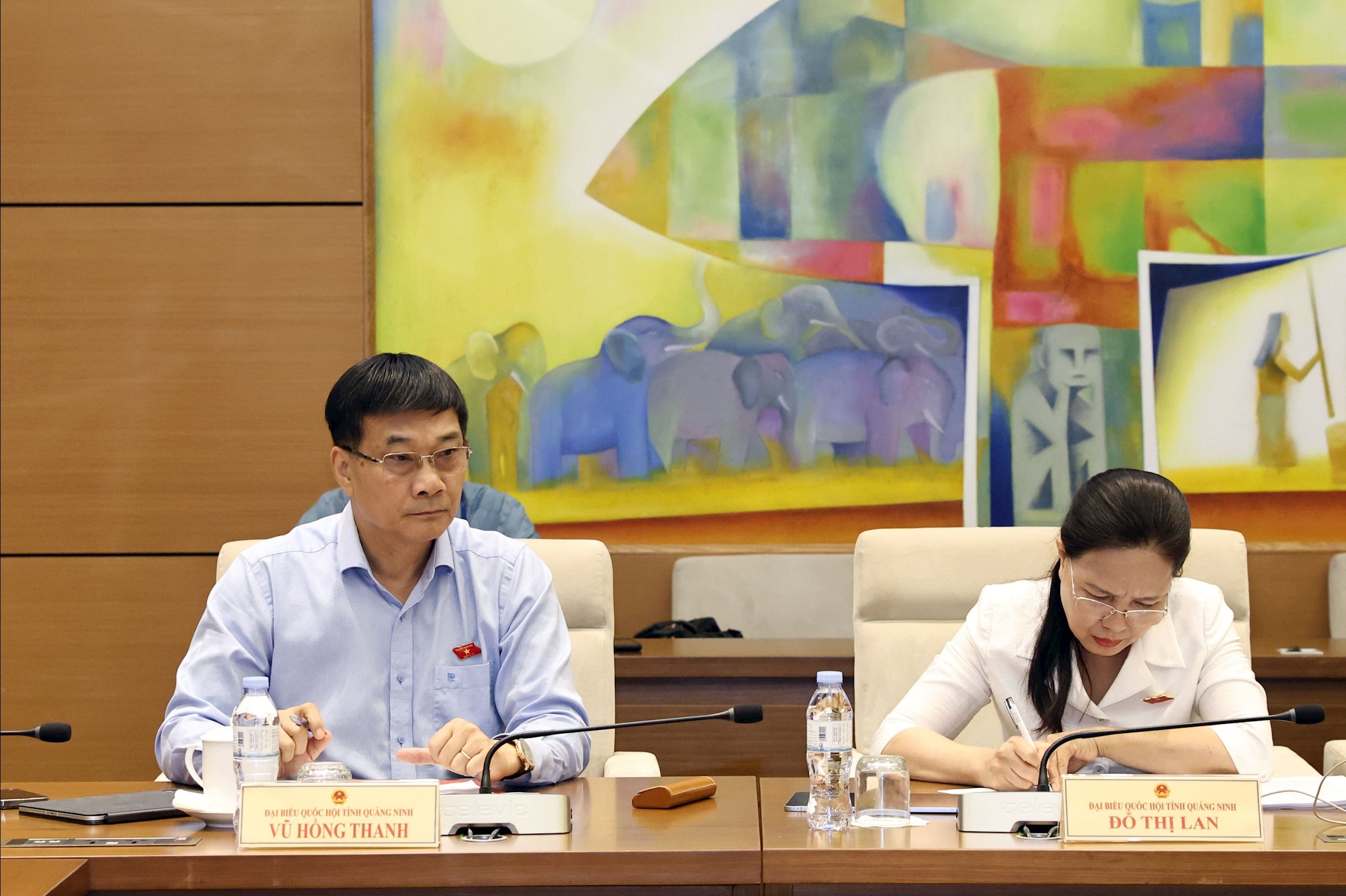
Clearly stipulate or specifically reference the code of conduct for civil servants
The majority of National Assembly Deputies Group 14 agreed to develop and promulgate the Law on Civil Servants (amended) to comprehensively innovate the recruitment, use, and management of civil servants according to job positions in order to institutionalize the Party's policy on restructuring and improving the quality of civil servants; creating a mechanism to connect human resources between the public and private sectors.
At the same time, attract and make use of high-quality human resources to improve the operational efficiency of public service units associated with the mechanism of autonomy and self-responsibility, suitable to the characteristics of the industry and field to meet the requirements and tasks in the new situation.
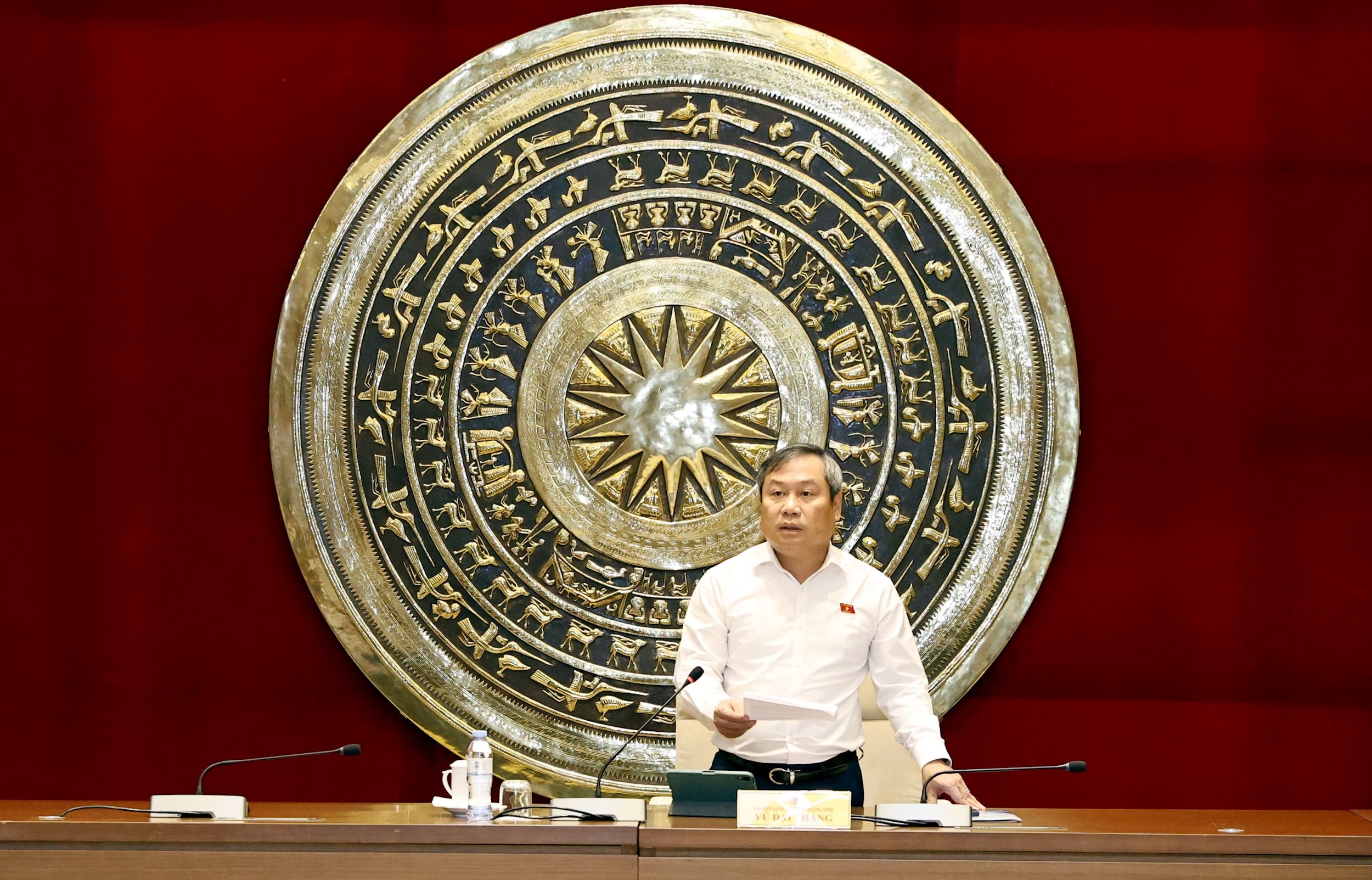
National Assembly Deputy Nguyen Thi Thu Ha (Quang Ninh) said that the draft Law's contents have many new points, especially to solve the problem of local surplus and shortage of civil servants, or to discover talented and gifted people in different fields, serving to support each other.
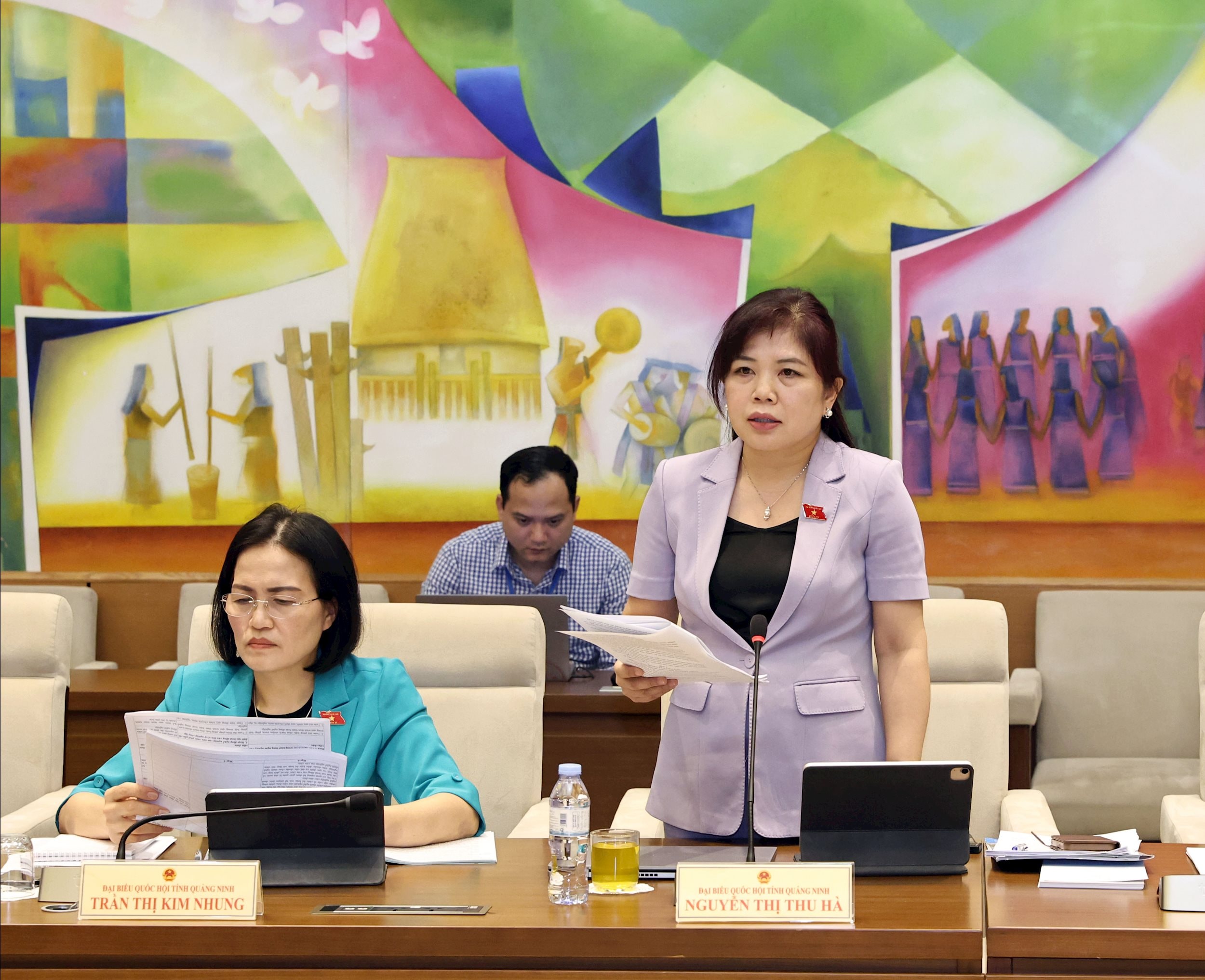
However, there are opinions suggesting that it is necessary to continue reviewing the provisions of the draft Law with current laws and other relevant draft laws and resolutions being submitted to the National Assembly at the 10th Session to ensure consistency and unity of the legal system.
Regarding the general obligations of civil servants (Article 7), Clause 5 stipulates: "Cultivate and practice professional ethics, and implement the code of conduct for civil servants". National Assembly Deputy Tran Dinh Gia ( Ha Tinh ) said that this provision is only at a general level, without specific references to documents regulating the code of conduct for civil servants, leading to difficulties in uniform application.
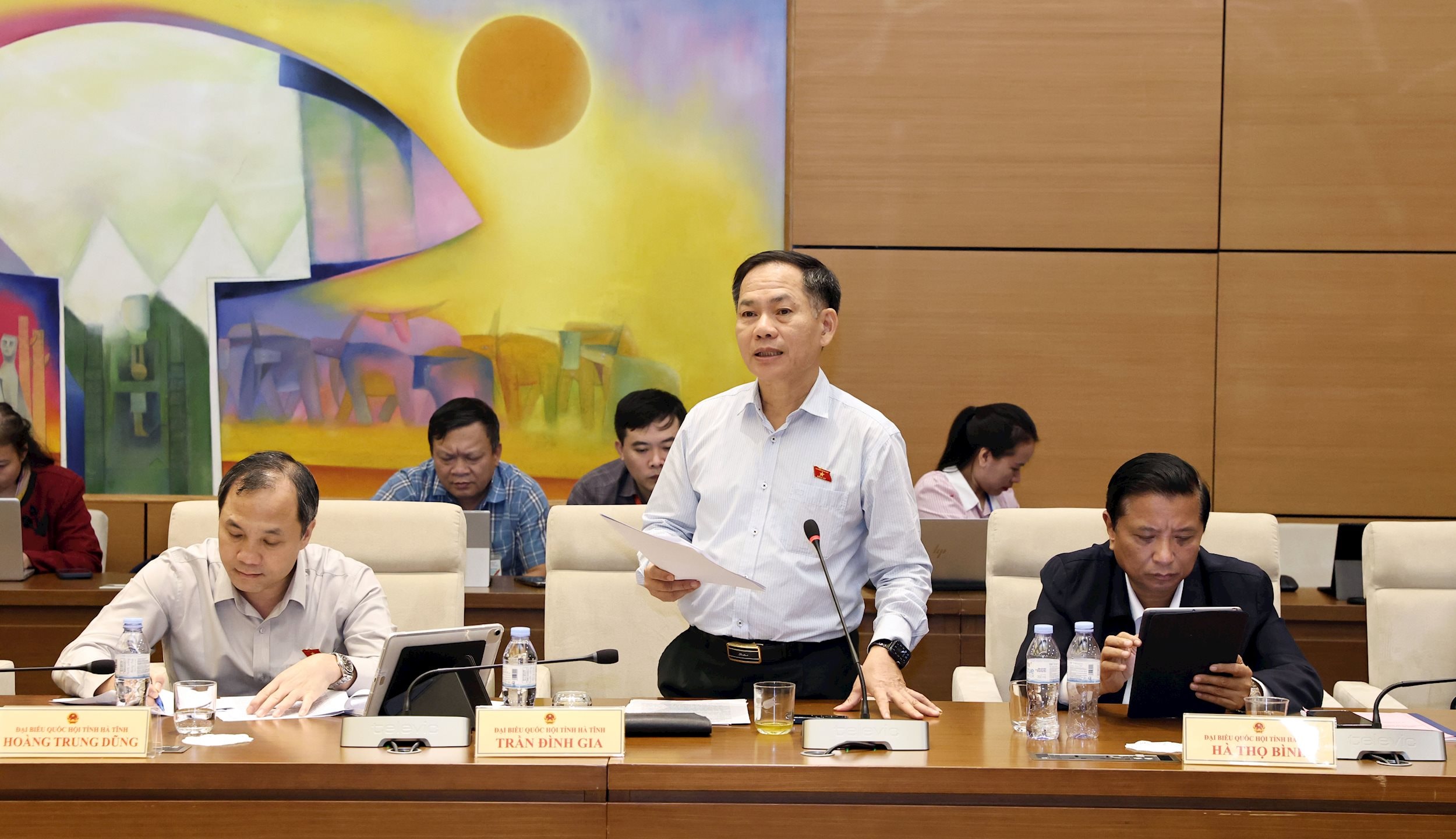
Therefore, it is recommended to review, clearly stipulate or specifically refer to current documents on codes of conduct for civil servants (such as codes of conduct in educational and medical establishments, or general regulations of the Ministry of Home Affairs) to ensure clarity, transparency and feasibility in implementation.
Clause 1, Article 7 stipulates: Loyalty to the Communist Party of Vietnam, the Socialist Republic of Vietnam; protection of national honor and national interests. Delegate Nguyen Thi Thu Ha suggested that the word “nationality” should be added, because this is the cultural identity, language, and tradition, to ensure full responsibility and common obligations of civil servants.
Continue to research the authority to recruit, use and manage civil servants.
One content that many National Assembly deputies are interested in is the authority to recruit civil servants (Article 18).
Accordingly, the public service unit management agency shall recruit civil servants according to the decentralization and authorization of the Ministry, branch, and provincial People's Committee, except for the case specified in Clause 2 of this Article.
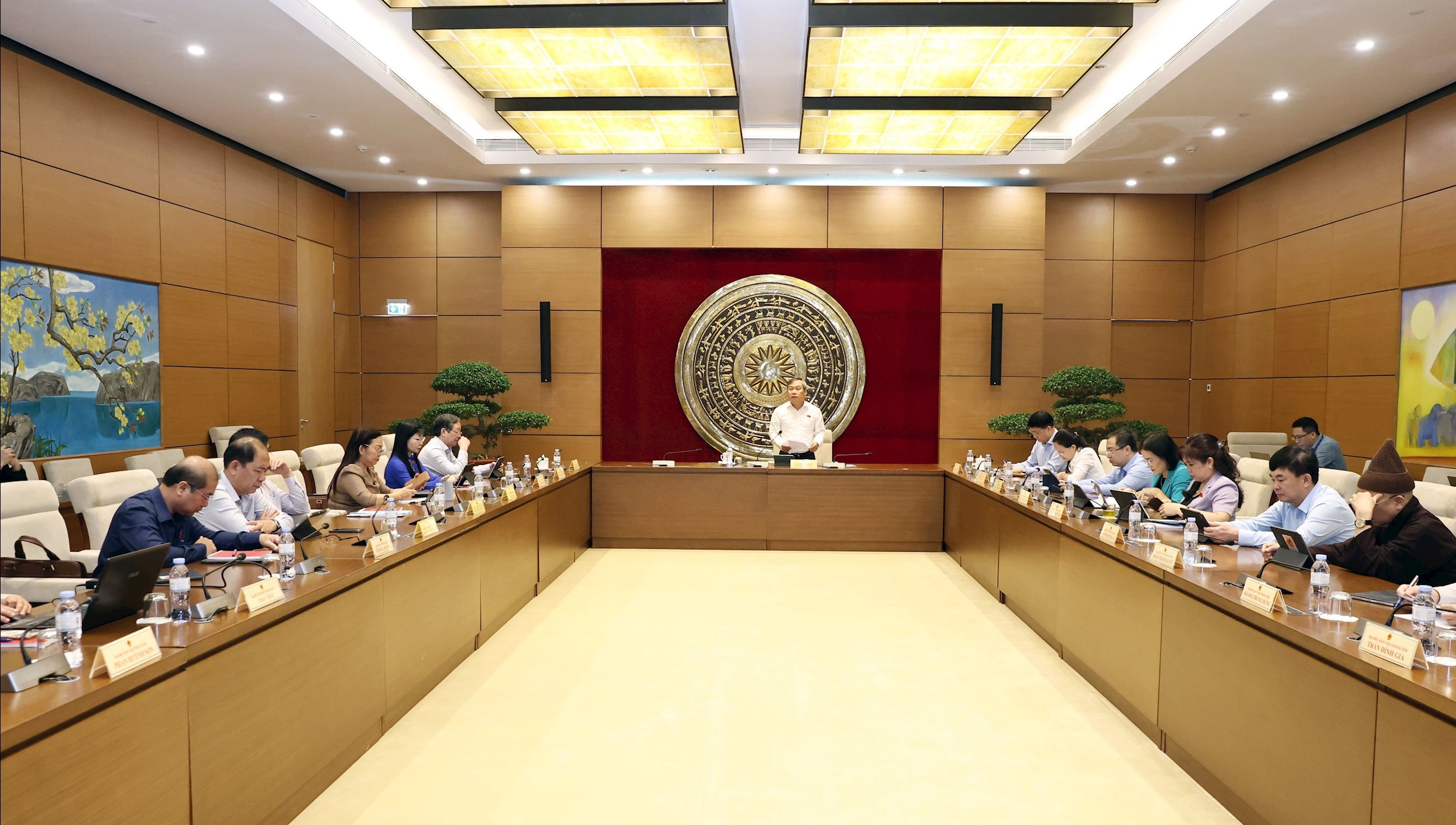
Based on the size of the organization, field of operation and capacity to meet recruitment requirements, the Government regulates the authority to recruit civil servants for public service units.
In case the public service unit specified in Clause 2 of this Article has a need to recruit but cannot carry out the recruitment itself, it shall propose the competent authority specified in Clause 1 of this Article to do so.
Delegate Tran Dinh Gia stated that Article 18 stipulates that the authority to recruit civil servants is the public service unit or according to the decentralization and authorization of the Provincial People's Committee; Article 40 stipulates that the authority to manage civil servants at the local level is the Provincial People's Committee.
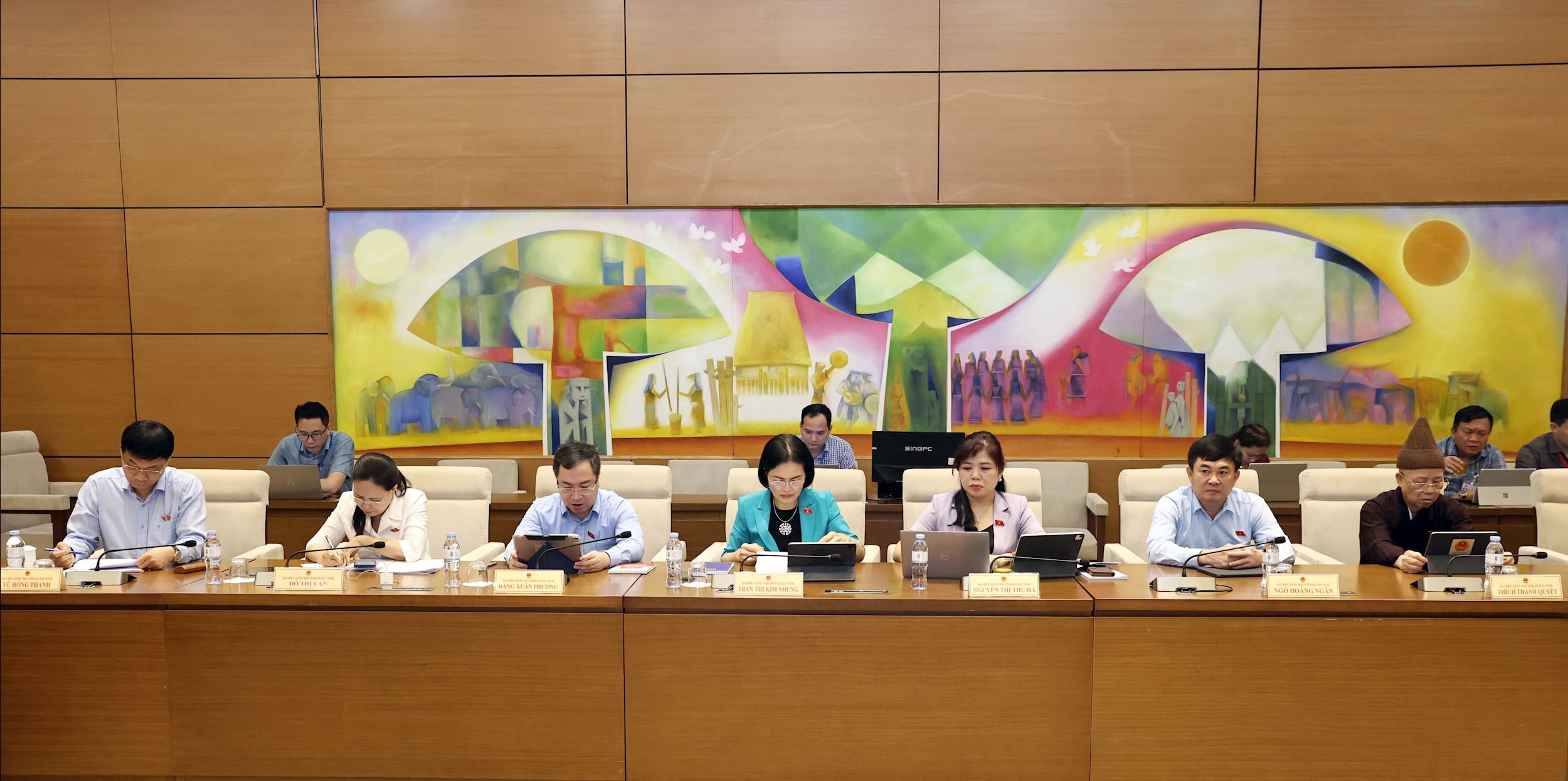
However, Clause 13, Article 17 of the Law on Organization of Local Government 2025 stipulates the duties and powers of the Chairman of the Provincial People's Committee as "directing and taking responsibility for the recruitment, use, management of civil servants and public employees, use and development of human resources, labor, employment, and social insurance in the area according to the provisions of law; ...".
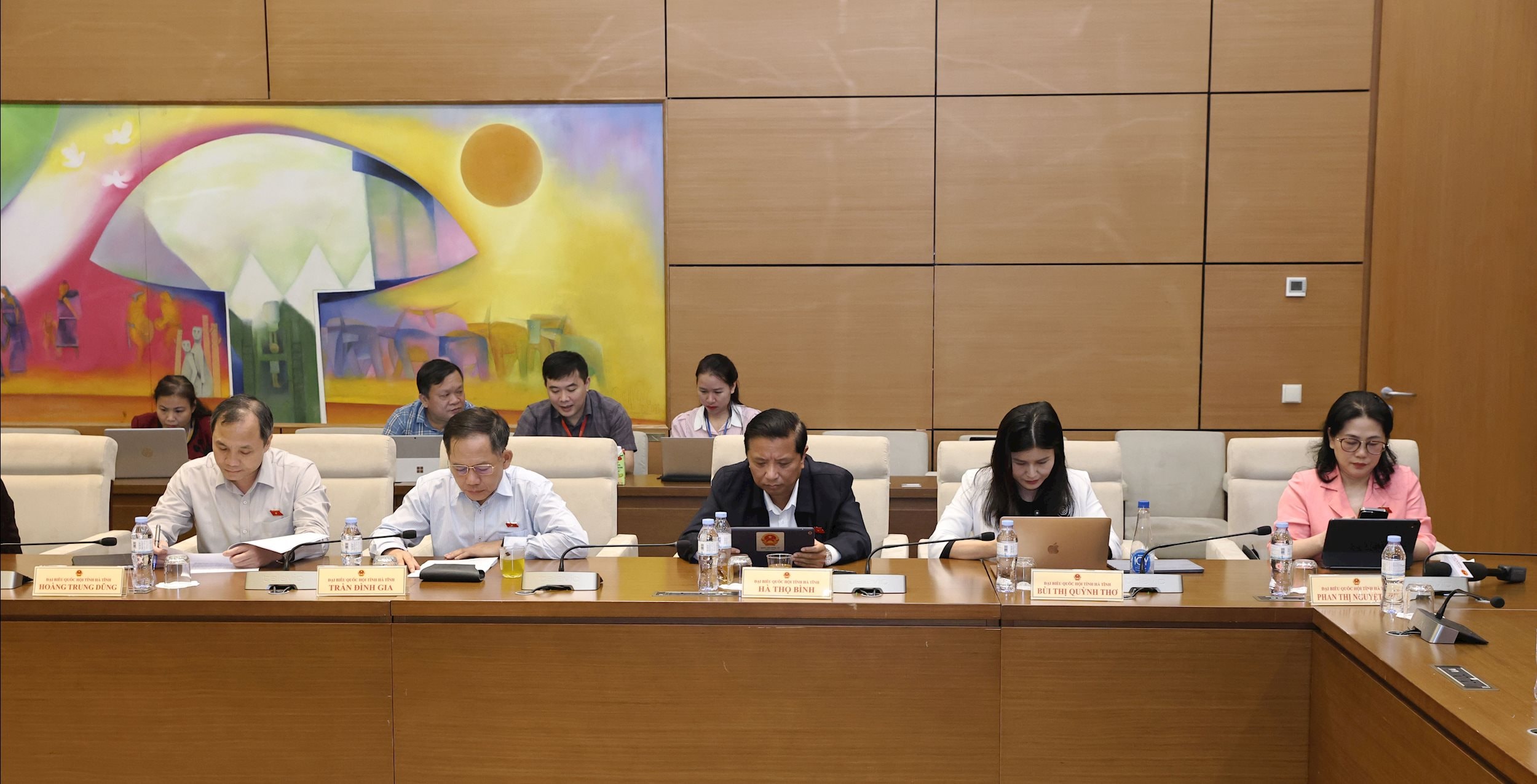
Therefore, delegate Tran Dinh Gia proposed to study the authority to recruit, use, manage civil servants, the authority to decentralize and authorize under the general authority (implementing agency) or the specific authority (head of the implementing agency) and to suit the management, direction and operation of the contents of the Provincial People's Committee.
On the other hand, National Assembly Deputy Tran Thi Kim Nhung (Quang Ninh) said that the provisions in the draft Law are unclear and quite general. They even conflict with the Law on Teachers when they allow the right to recruit teachers to belong to the management agencies of the education and training sector.
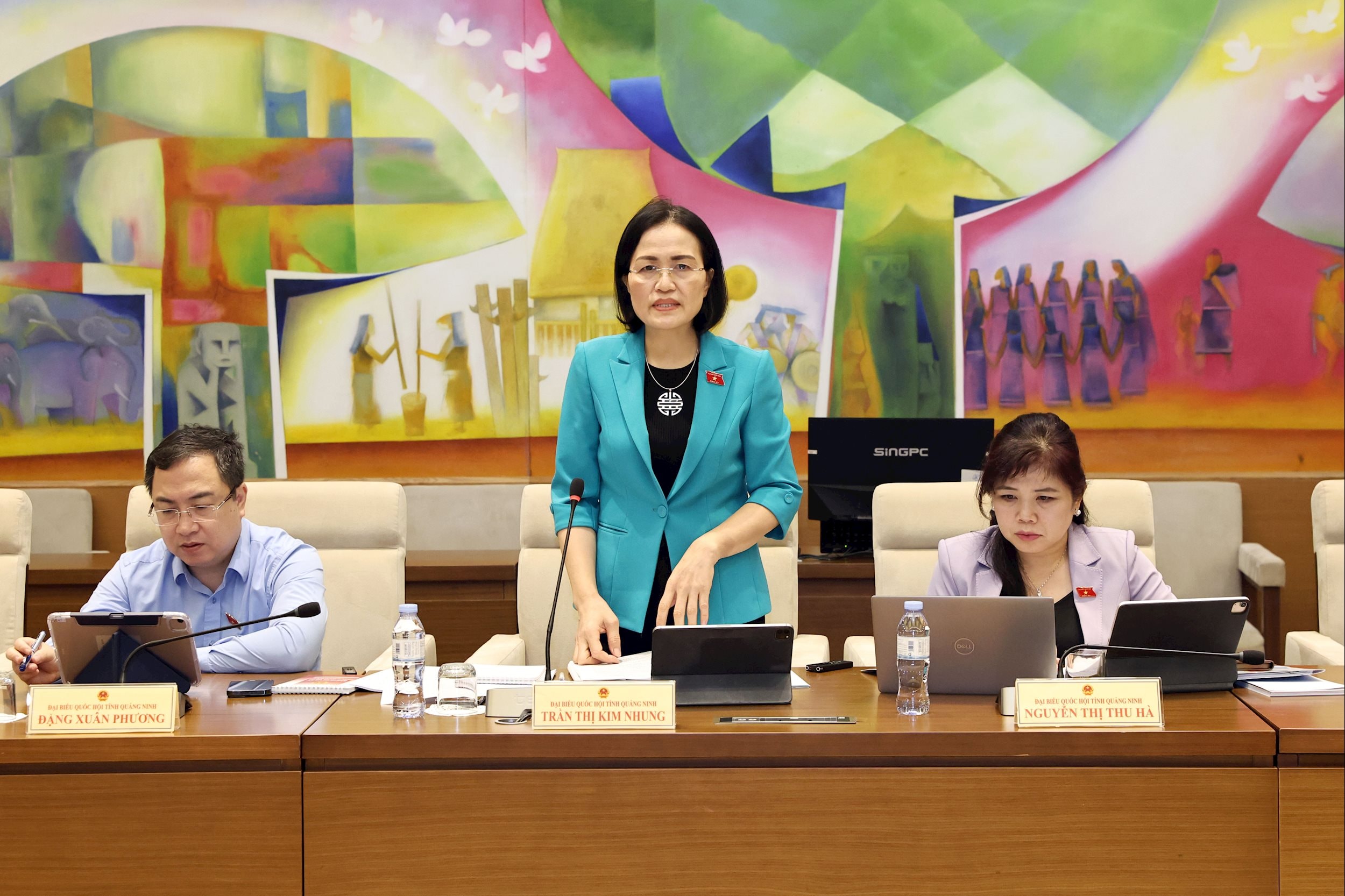
According to delegate Tran Thi Kim Nhung, to ensure consistency and clear implementation, avoid misunderstandings or conflicts, the draft Law should have an exclusionary provision related to the recruitment of civil servants in the education sector or a provision referring to implementation according to the provisions of the law on teachers, which would be more appropriate.
Sharing this view, delegate Nguyen Thi Thu Ha suggested that it is necessary to clarify which authority is assigned to the Department of Education and which authority is assigned to the People's Committee at the commune level, because this is also related to rotation, management and responsibility in recruiting civil servants. Clearly define the authority to recruit civil servants so that implementation does not get stuck.
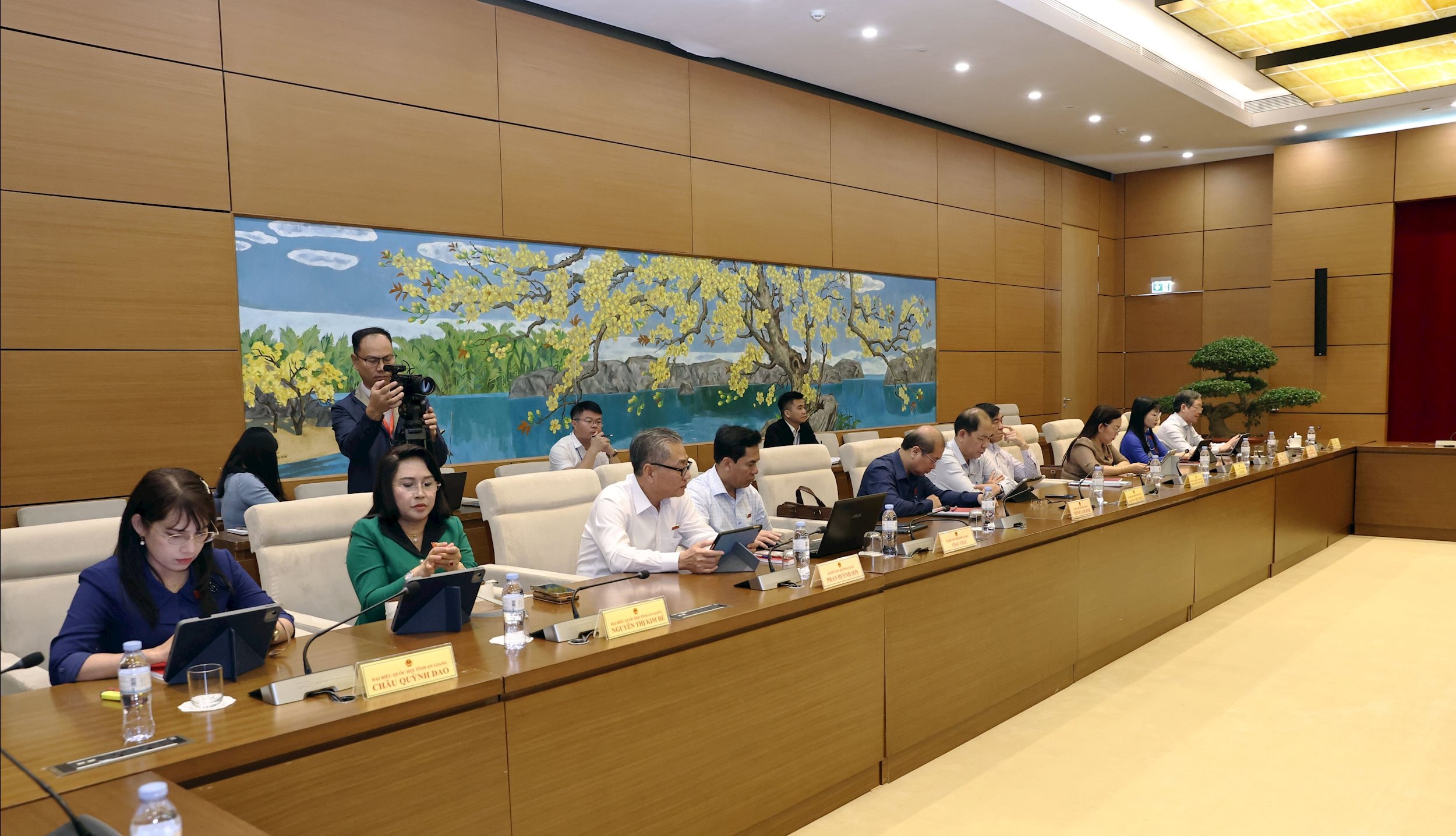
Source: https://daibieunhandan.vn/can-quy-dinh-ro-rang-tham-quyen-tuyen-dung-vien-chuc-10392380.html






![[Photo] Prime Minister Pham Minh Chinh chairs meeting on railway projects](https://vphoto.vietnam.vn/thumb/1200x675/vietnam/resource/IMAGE/2025/10/23/1761206277171_dsc-9703-jpg.webp)

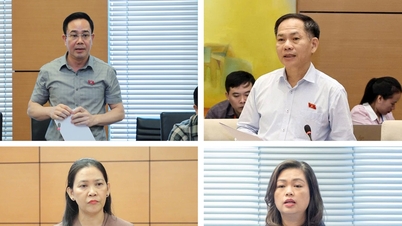
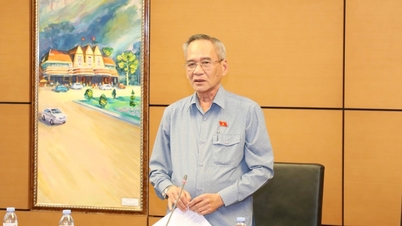
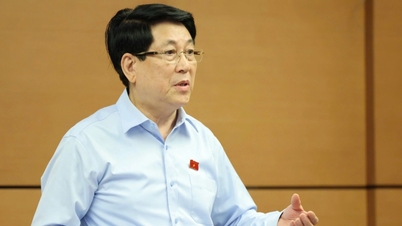

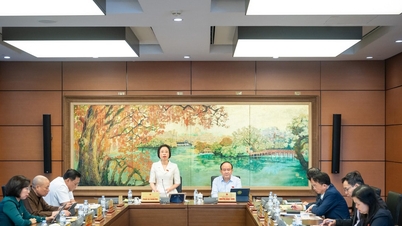
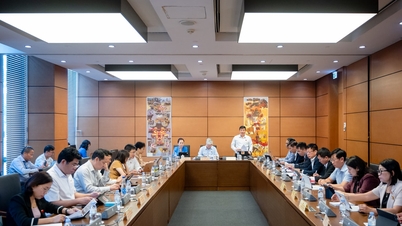
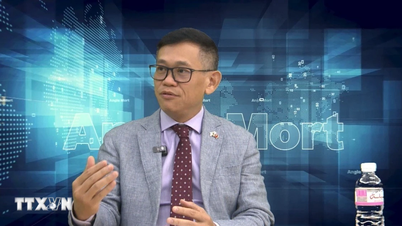

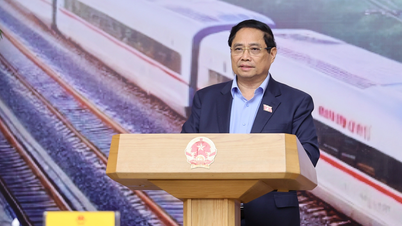

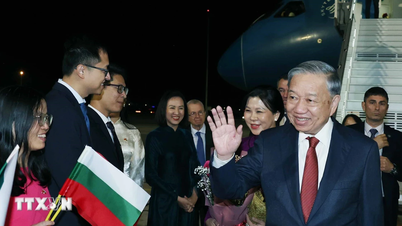
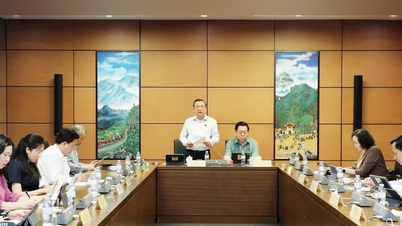
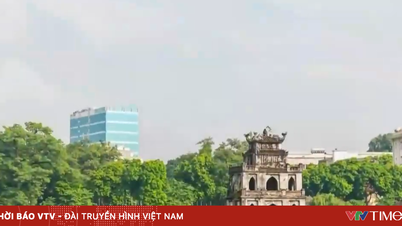

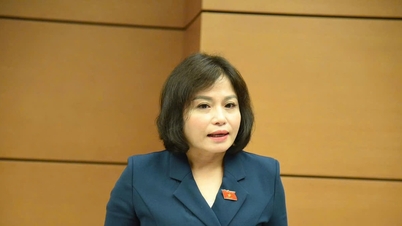




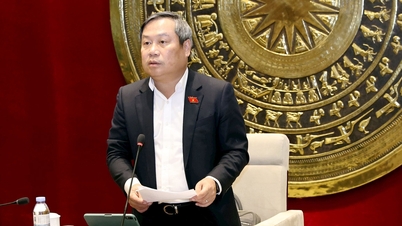
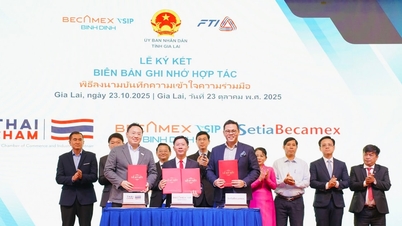
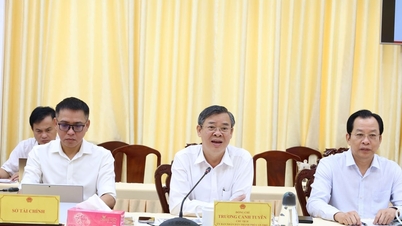
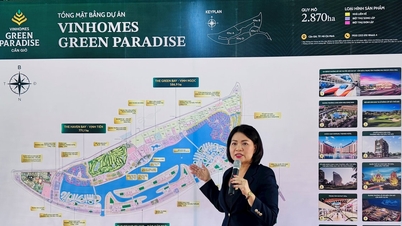
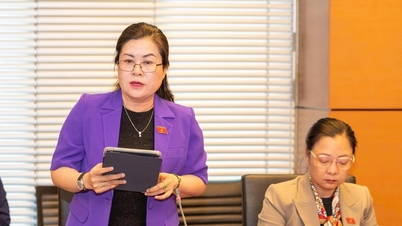
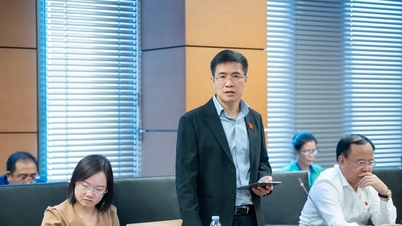
![[Photo] General Secretary To Lam and his wife begin their official visit to Bulgaria](https://vphoto.vietnam.vn/thumb/1200x675/vietnam/resource/IMAGE/2025/10/23/1761174468226_tbtpn5-jpg.webp)



















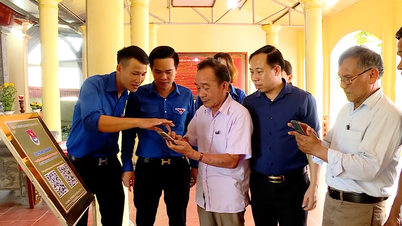





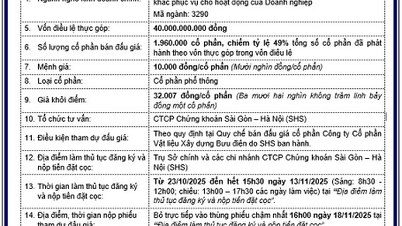









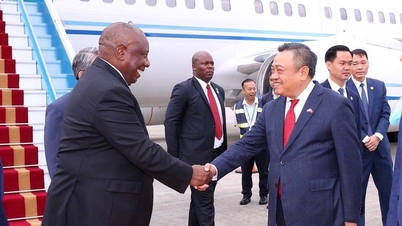








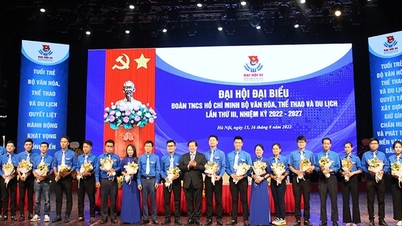

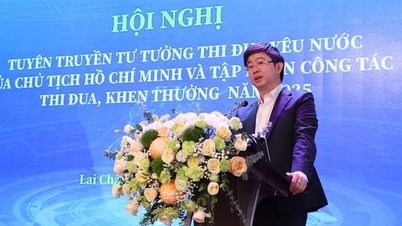

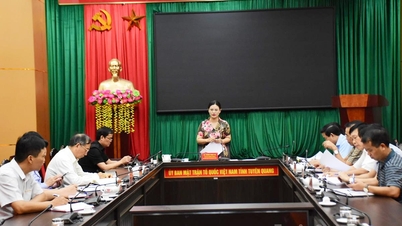

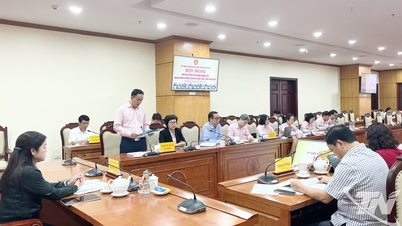

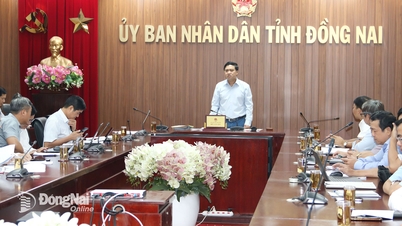


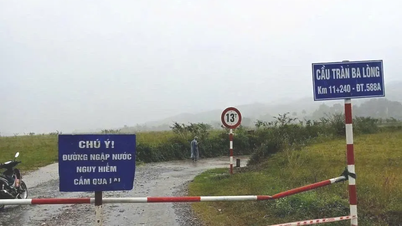


















Comment (0)